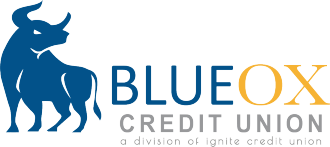what is identity theft?
Identity theft occurs when someone illegally obtains your personal information – such as your Social Security Number, bank account number or other identification – and uses it to open new accounts or initiate transactions in your name.
Criminals can obtain personal information through online and offline methods. Stealing wallets and purses, intercepting or rerouting your email and rummaging through your garbage are just some of the common tactics that thieves may use.
recognize identity theft and fraud
Identity thieves can strike even if you’ve been very careful with your personal information. The following may be signs of identity theft:
- New accounts on your credit report that are not yours.
- Not receiving an expected bill or statement by mail.
- Receiving credit cards or billing statements on accounts you didn’t apply for.
- Denied credit or offered less than favorable credit terms for no reason.
- Calls from creditors or debt collectors regarding merchandise or services that you did not buy.
tips to protect yourself
Carefully review websites, online advertisements, and emails before taking any action or submitting any personal information online. Memorize your password and Personal Identification Numbers (PINs). Do not write them down, save them on your computer or reveal them to anyone.
- Create complex passwords that are 8 – 12 characters in length and not obvious or easily obtainable information. The longer the password, the better. Include: letters and numbers, at least four different characters (no repeats), at least one special character and a sequence of random letters and numbers.
- Change your Online Banking password every 30 to 60 days.
- Never email or provide your account number, Social Security Number or other sensitive information to anyone.
- Never leave your computer unattended while logged in.
- Complete your banking tasks and end your web sessions by always logging out.
- When visiting social networks, remember that sharing information like your birth date, phone number, email address, location and photos can put your identity at risk.
- Carry only necessary information with you.
- Leave your Social Security card and unused credit cards at home in a safe and secure location.
- Make photocopies (front and back) of vital information you carry regularly and store them in a secure place, such as a safety deposit box. Then, if your purse or wallet is lost or stolen, you have the relevant contact information readily available.
- Do not provide your Social Security Number unless absolutely necessary.
- Replace paper invoices, statements and checks with electronic versions, if offered by your employer, bank, utility provider or merchant.
- Contact the company’s customer service department if you stop receiving your regular bill or statements.
- Shred documents containing personal or financial information before discarding.
- If you are uncomfortable with a phone call that was not initiated by you, hang up or ask for the purpose of the call. Then contact the company using legitimate sources such as contact phone numbers found on the company’s website, your bank statements and those listed on your debit or credit cards.
- Maintain a close watch on your bank accounts, credit card accounts, loan accounts and review your credit report at least twice annually.
- Make sure BlueOx Credit Union has your current contact information so we can reach you if fraudulent activity is suspected on your account.
- Obtain a free credit report from each of the credit reporting companies and review it carefully. Contact the applicable credit reporting companies immediately if you find any unknown or suspicious activity.
- Consider subscribing to a credit monitoring service and monitor your credit reports regularly.
- Use computer virus protection software.
« Return to "Member Security" Go to main navigation
